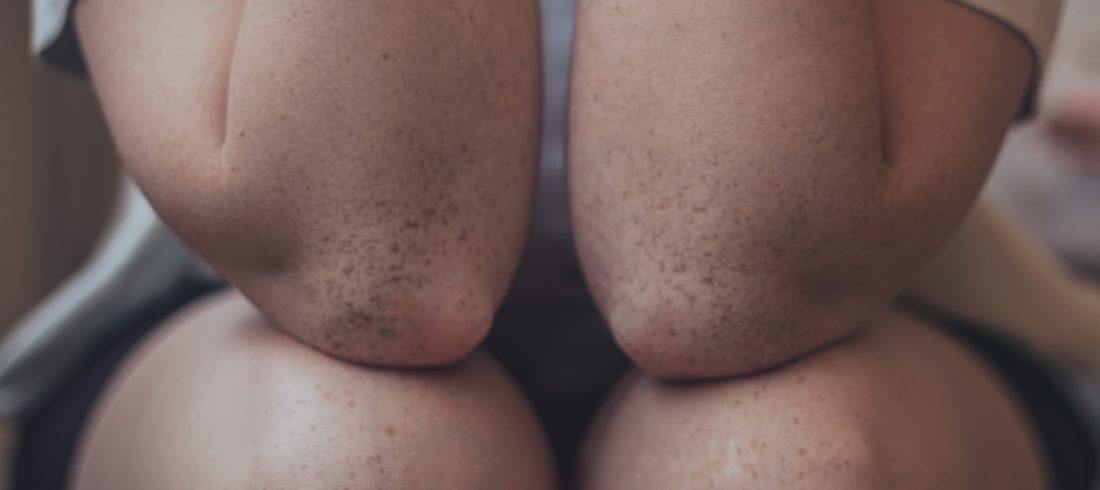Isn’t it just growing pains?
Parents wear many hats, and at home, they tend to be “lead diagnosticians” for their families. Of course, not every symptom is as easy to identify as a cough or fever. July is Juvenile Arthritis Awareness Month, a good time to refresh our thinking about arthritis, a condition popularly thought to only affect older people. In fact, children can develop nearly every type of arthritis, which can be tricky to recognize in youths, who may not immediately complain of joint discomfort. Additionally, experts note that juvenile arthritis may be mistaken for other conditions. Below we take a closer look to learn more.
Remind Me, What is Arthritis?
Arthritis is a term used to indicate any condition that affects our body’s joints, where two bones meet. As defined by the US National Institute of Arthritis and Musculoskeletal and Skin Diseases (NIH), there are several types:
- Osteoarthritis – the most common and is generally seen among older people, occurring when joint cartilage breaks down and allows bones to rub together
- Rheumatoid arthritis – an autoimmune disease that targets joint tissues
- Gout – caused by the buildup of uric acid in joints, generally the big toe
- Other forms related to diseases such as lupus, fibromyalgia, psoriasis and certain infections
Finally, there is juvenile idiopathic arthritis (JIA), which – as the name implies – affects children.
Juvenile Idiopathic Arthritis and its Types
A joint condition appearing before the age of sixteen, is an autoimmune disorder, or when the body’s immune system attacks its organs and tissues, such as those at the joints. According to the NIH, it affects roughly one in one-thousand children in the US. Labeled “idiopathic,” researchers have yet to identify a specific cause. However, several genes as well as infection and immune system issues have been identified as influencing a person’s risk of developing JIA. Only a small share of cases have been attributed to family history, which is not regarded as a major factor.
There are several types of JIA and vary by symptoms, number of affected joints and lab test results among others.They include:
- Systematic – affecting one or more joints, and characterized by a high daily fever that lasts roughly two weeks as well as enlarged lymph nodes, liver or spleen
- Oligoarticular – the most common type and leading to roughly half of all cases, it affects four or fewer joints and increases the risk of eye inflammation
- Rheumatoid factor positive polyarticular – affecting five or more joints, individuals test positive for rheumatoid factors in the blood
- Rheumatoid factor negative polyarticular – same as above, but without a positive test
- Psoriatic – tends to appear together with psoriasis, a skin disorder
- Enthesitis related – soreness where the bone meets a tendon
Symptoms of Juvenile Idiopathic Arthritis
Turning to rheumatology.org, a site operated by the American College of Rheumatology, symptoms of JIA include:
- Limping
- Stiffness when waking up in the morning
- Resistance to using arms or legs
- Reduced activity level
- Persistent fever
- Joint swelling
- Difficulty with fine motor activities
Treating and Living With Juvenile Idiopathic Arthritis
Fortunately, arthritis in children is treatable, and most lead normal lives. Experts at rheumatology.org suggest those with JIA perform “ordinary” kid stuff: attend school and be part of extracurricular and family activities. As with most conditions, a positive attitude and remaining active are vital factors. Visiting a physical therapist may lead to improved joint motion and reduced pain, among other benefits. On top of that, there is Federal Act 504, which can provide students with JIA special accommodations.Section 504 is a civil rights law that prohibits discrimination against individuals with disabilities. Section 504 ensures that the child with a disability has equal access to an education. The child may receive accommodations and modifications
Above all, a pediatric rheumatology team is equipped to diagnose and provide relief to children with JIA and their families.
Connect with Premier Medical Group’s Rheumatologists and Pediatricians
At Premier Medical Group, we are staffed with exceptionally skilled rheumatologists and pediatricians, who are ready to help your family. Schedule an appointment with one of our physicians today to get started.
Sources
What is juvenile arthritis?
What is arthritis?
What exactly is a joint?
Juvenile idiopathic arthritis
Juvenile Arthritis

